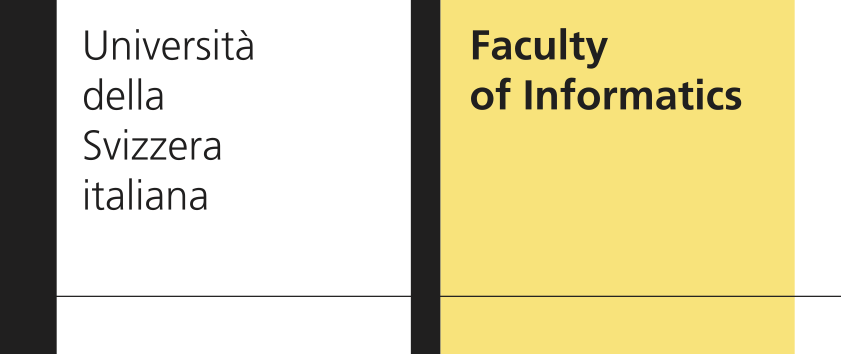|
|
Keynote Talks
|
|
Date and Time: Nov. 13, 2013, 8:30 AM - 10:10 AM
Location: Mediterranean II, III
Speaker: Joseph M. Hellerstein
University of California, Berkeley, USA
Abstract
With the rapid expansion of cloud infrastructure and mobile devices,
distributed systems have quickly emerged as a dominant computing
platform. Distributed systems bring significant complexity to
programming, due to platform issues including asynchrony, concurrency,
and partial failure. Meanwhile, scalable distributed
infrastructure---notably "NoSQL" systems---have put additional burdens
on programmers by sacrificing traditional infrastructure contracts
like linearizable or transactional I/O in favor of high availability.
A growing segment of the developer community needs to deal with these
issues today, and for the most part developers are still using
languages and tools designed for sequential computation on tightly
coupled architectures. This has led to software that is increasingly
hard to test and hard to trust.
Over the past 5 years, the BOOM project at Berkeley has focused on
making it easier to write correct and maintainable code for
distributed systems. Our work has taken a number of forms, including
the development of the Bloom programming language for distributed
systems, tools for testing and checking distributed programs, and the
CALM Theorem, which connects programmer level concerns of determinism
to system-level concerns about the need for distributed coordination.
This talk will reflect on this work, and highlight opportunities for
improved collaboration between the software engineering and
distributed systems research communities.
About the Speaker
Joseph M. Hellerstein is a Chancellor's Professor of Computer Science at the
University of California, Berkeley, whose work focuses on data-centric systems and the way they drive computing. He is an
ACM Fellow, an
Alfred P. Sloan Research Fellow and the recipient of three
ACM-SIGMOD "Test of Time" awards
for his research. In 2010, Fortune Magazine included him in their list of
50 smartest
people in technology, and MIT's Technology Review magazine included his Bloom language
for cloud computing on their TR10 list of the 10
technologies "most likely to change our world".
Hellerstein is the co-founder and CEO of Trifacta.
He serves on the technical advisory boards of a number of computing and Internet companies including
EMC,
SurveyMonkey,
Platfora,
Captricity, and
Graphlab, and previously served as the Director of Intel Research, Berkeley.
|
|
|
Date and Time: Nov. 15, 2013, 2:30 PM - 4:00 PM
Location: Mediterranean II, III
Speaker: Jeremy Frank
NASA Ames Research Center, Moffett Field, USA
Abstract
Mission planning is central to space mission operations, and has
benefited from advances in model-based planning software. A model is a
description of the objects, actions, constraints and preferences that
the planner reasons over to generate plans. Developing, verifying and
validating a planning model is, however, a difficult task. Mission
planning constraints and preferences arise from many sources,
including simulators and engineering specification documents. As
mission constraints evolve, planning domain modelers must add and
update model constraints efficiently using the available source data,
catching errors quickly, and correcting the model. The consequences
of erroneous models are very high, especially in the space operations
environment.
We first describe the space operations environment, particularly the
role of the mission planning system. We then describe model-based
planning, and briefly review the current state of the practice in
designing model-based mission planning tools and the challenges facing
model developers. We then describe an Interactive Model Development
Environment (IMDE) approach to developing mission planning systems.
This approach integrates modeling and simulation environments to
reduce model editing time, generate simulations automatically to
evaluate plans, and identify modeling errors automatically by
evaluating simulation output. The IMDE approach was tested on a small
subset of the
Lunar Atmosphere and Dust Environment Explorer (LADEE)
flight software to demonstrate how to develop the LADEE mission
planning system.
About the Speaker
Dr. Jeremy Frank is an employee of NASA at
NASA Ames Research Center.
He works in the Autonomous Systems and Robotics Area of the
Intelligent Systems Division. He is Group Lead of the Planning and
Scheduling Group, an organization of 30 researchers and staff that
designs and builds space mission operations tools. Dr. Frank has an
MS and a PhD in Computer Science from the University of California
(Davis). He also has a BA in Mathematics from Pomona College.
Dr.
Frank’s research interests include combinatorial optimization,
operations research, artificial intelligence, applied to the
automation of space mission operations. Dr. Frank has successfully
led and participated in several research and development projects
during his 12 years at NASA. Dr. Frank is the Principal Investigator
of the Autonomous Mission Operations (AMO) Project, a NASA Advanced
Exploration Systems Program project that develops advanced technology
prototypes for mission operations in the presence of large time
delays. He has received over twenty five NASA awards, including a
Silver Snoopy (the Astronaut’s Personal Award) and the Exceptional
Achievement Medal.
|
|












